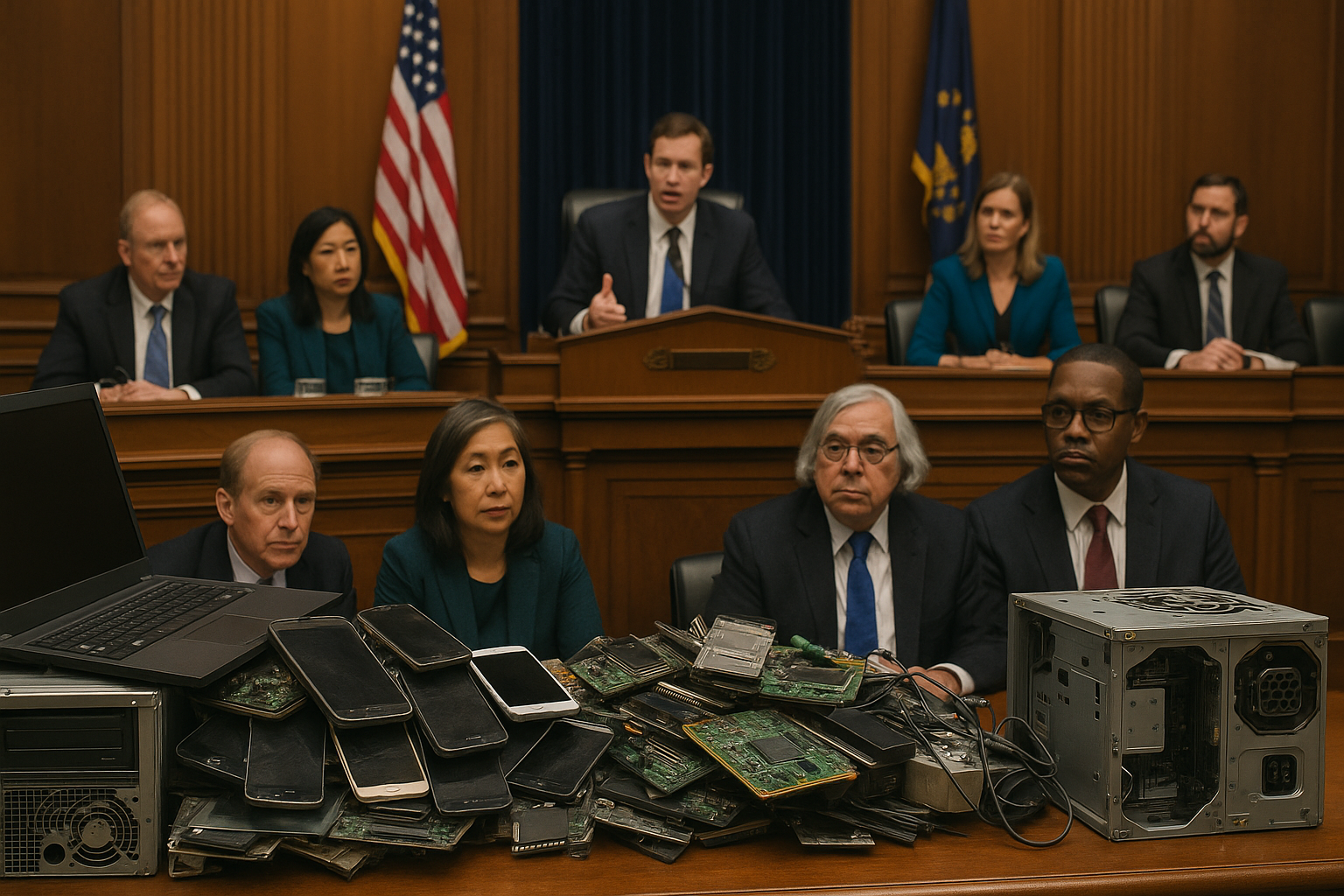As the global race for critical minerals intensifies, U.S. lawmakers are turning their attention inward to the mountains of digital waste already within their borders. At a recent congressional hearing, legislators emphasized the strategic importance of technology recycling in reducing dependency on China, which currently dominates the global supply chain of essential rare earth materials like lithium, cobalt, and nickel.
Why Technology Recycling is More Than Just Environmental Policy
The digital age has brought unprecedented convenience, but it has also left behind a trail of discarded electronics. According to the Global E-Waste Monitor 2024, over 62 million metric tons of e-waste were generated globally last year, with the U.S. contributing a staggering 7 million tons. Much of this waste contains highly valuable materials critical for the production of electric vehicles (EVs), smartphones, solar panels, and defense technologies.
Instead of continuing to rely on overseas mining particularly from geopolitical rivals like China Congress is now pushing to build a national ecosystem centered around technology recycling. This shift isn’t just an environmental move it’s a matter of economic and national security.
Expert Opinions Highlight Strategic Value
Dr. Emily Chang, a materials scientist at MIT, testified at the hearing and emphasized that “Urban mining” extracting rare minerals from discarded electronics can yield up to 40 times more gold per ton than ore mined from the earth. “The critical minerals we desperately need are already in our landfills,” she said. “The only question is: do we have the infrastructure to get them out?”
Former U.S. Energy Secretary Ernest Moniz echoed these sentiments, stressing that improving technology recycling is crucial to achieving clean energy goals. “We’re setting ambitious targets for EV adoption,” Moniz stated. “But those goals mean nothing if we’re still importing 80% of our lithium from China.”
Redwood Materials: A Domestic Solution
Founded by Tesla’s former CTO JB Straubel, Redwood Materials has emerged as a case study in the power of technology recycling. Based in Nevada, the company specializes in recovering lithium, nickel, and cobalt from old batteries and reintroducing them into the domestic supply chain.
In 2024, Redwood partnered with major retailers like Best Buy and Amazon to launch a national battery recycling program. Within a year, they recovered over 6,000 tons of batteries, extracting materials equivalent to powering 200,000 new electric vehicles. The company now supplies recycled materials to U.S based EV manufacturers, reducing their reliance on foreign imports.
Straubel says, “We’re not just solving a waste problem we’re solving a supply problem and creating jobs in the process.”
The Human Element Personal Experience in E-Waste Recovery
John Mendez, a former coal miner from Kentucky, now works in an electronic recycling plant in Louisville. “When coal jobs dried up, I had nowhere to go,” he recalls. “But this new industry gave me another chance. We dismantle computers and phones, and I’ve learned to separate metals that are worth thousands of dollars.”
His story illustrates the broader potential of technology recycling to revitalize local economies, particularly in post industrial regions. “It’s honest work, and it feels good to be part of something that helps the environment and the country,” Mendez added.
Competing With China on Strategic Resources
China currently controls over 70% of global rare earth production and refining capacity. This dominance gives it considerable leverage over international technology and defense markets. In recent years, Beijing has hinted at using rare earth exports as a political tool, making Washington increasingly uneasy.
To counter this, the U.S. must not only explore new mines but also close the loop through technology recycling. A 2023 study by the National Renewable Energy Laboratory concluded that domestic e-waste could meet 35 to 45% of the nation’s lithium demand by 2035 if properly harnessed.
Yet, the U.S. lacks a cohesive national strategy for e-waste collection and processing. Unlike the European Union, which has implemented strict e-waste laws, America’s patchwork of state policies often results in inefficiencies and underutilization.
Legislators, including Senator Lisa Murkowski and Congressman Ro Khanna, are now pushing bipartisan bills to fund research, infrastructure, and public education initiatives around technology recycling. The proposed Electronic Recycling Innovation Act would provide $500 million over five years to support scalable solutions.
Building a Resilient Future
The push for technology recycling is more than an environmental imperative it’s a national security strategy, an economic revitalization plan, and a chance to lead the world in sustainable innovation.
As global tensions rise and the demand for electronics and EVs explodes, the U.S. has a golden opportunity hidden in its own trash. By investing in smarter systems and policies today, legislators are betting that America’s future can be powered not just by innovation, but by the waste of yesterday.
The urgency is clear, the U.S must leverage technology recycling to reclaim control over critical minerals and reduce reliance on China. With support from Congress, industry leaders, and workers alike, the nation stands at the cusp of a recycling revolution one that could shape the geopolitical and environmental landscape for generations to come.

1 thought on “How U.S. Lawmakers Are Using Technology Recycling to Beat China’s Grip on Critical Minerals”